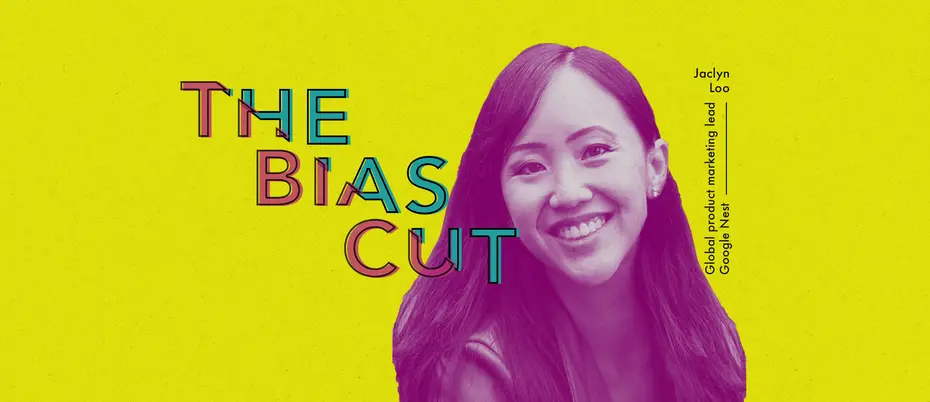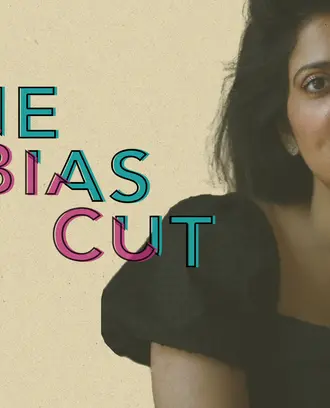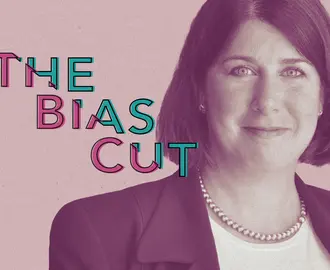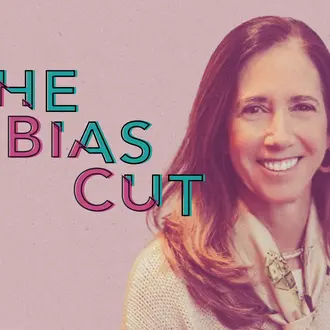The Bias Cut
This Google Nest pro wants you to 'always have a point of view'
“Making your perspective known not only builds your brand but can also drive progress.”
A 2021 women’s leadership study from LeanIn.org and McKinsey & Co. found that American women held 41% of corporate management positions, and women continue to fight underrepresentation when it comes to board positions and CEO roles. They also face gender bias, harassment, and opposition to their management styles.
Here’s how one MIT Sloan alumna has pushed back on those statistics and used what she’s learned along the way to help those behind her.
Jaclyn Loo, MBA ’11, global product marketing, subscriptions lead, Google Nest
In what ways is your professional life as a woman in the workplace different from how you imagined it would be when you started your career?
Early on, I assumed that I would find an area or topic that I loved, pick a lane, and go deep in it. I’ve since learned that growth comes in so many different forms across roles and functions. Titles aren’t everything. I’ve always tried to add diversity into my experiences to round out my skill set, knowledge, and networks, and that’s made me a stronger and more inclusive leader. What excites me has also changed over time. Opportunities in the tech industry are always evolving, and that means we can all keep learning and growing.
Who was an ally or mentor for you as you’ve navigated your career? What made that person stand out, and how specifically did they help you get to the next level of your professional development?
I’ve been fortunate to have many mentors and sponsors throughout my career. My first manager at Google, Tran Hang, stands out because she encouraged me, supported me with stretch assignments, and advocated for me when I wasn’t in the room. Tran also taught me to “always have a point of view,” which is advice I’ve taken to heart as I’ve navigated different roles and relationships. Making your perspective known not only builds your brand but can also drive progress. Owning and leveraging the power of your perspective is so critical, especially for women in business.
Can you give an example of a time you’ve experienced or witnessed gender bias? How did it affect you professionally? What impact did it have on your job?
At my first full-time job I was mistaken for an intern by a colleague after I’d worked with him for many months. To this day I’m not sure whether it was due to my gender, age, or both (most likely). Nonetheless, this made me more determined to prove myself. I started being more intentional about how I “showed up” in meetings, and became more vocal about my long-term goals. Perhaps most importantly, I learned how important it is to be your own advocate and connect the dots for others when it comes to your impact. You can’t assume it’s happening or that others will do it for you.
Certain industries are as male-dominated as ever. Where do you see progress in your own professional experience, and how can we scale that throughout your industry?
Early in my career I was at lunch with nine coworkers. I didn’t realize that I was the only woman until our waitress made a friendly comment about it. While I hadn’t really thought about it before, this made me take a closer look at the male: female ratio within our company, particularly within leadership. Fast forward to today, and I’ve seen many inspiring female leaders across functions and industries. Representation matters, and having others to look up to — and hear from — makes a big difference. Many managers I’ve worked with are mothers, which personally inspires me. Normalizing conversations about work-life balance and family, regardless of your gender or identity, is an easy way to start.
How do you support women coming up behind you?
I’m currently mentoring four women at Google and have facilitated courses on leadership development. I've been active with Barnard College (my alma mater) in areas related to technology and career development, and have recently been invited to serve on the Alumni Leadership Council for Forté, a nonprofit which supports women throughout their MBA journeys and beyond. But it’s not about just “sending the elevator back down.” I learn from my mentees too, and oftentimes the advice that I give them is a good reminder for myself as well.
What is the most difficult lesson you’ve learned in your professional life? In what unexpected ways did you grow from it?
That I can’t do everything, and some things have to get dropped. I had much more empathy for parents after I became one — so much happens before 9 a.m.! As someone who used to pull all-nighters in college, I assumed that I’d be able to put more hours in outside of work to get things done. I can still do that, but it’s not sustainable or healthy. I see potential in everything, and it can be tempting to lean into more things at work or volunteer activities. But I also recognize the power of saying “no,” having a stronger impact on fewer things, and maintaining a healthier balance.
Read next: How a visionary boss helped this CEO succeed




